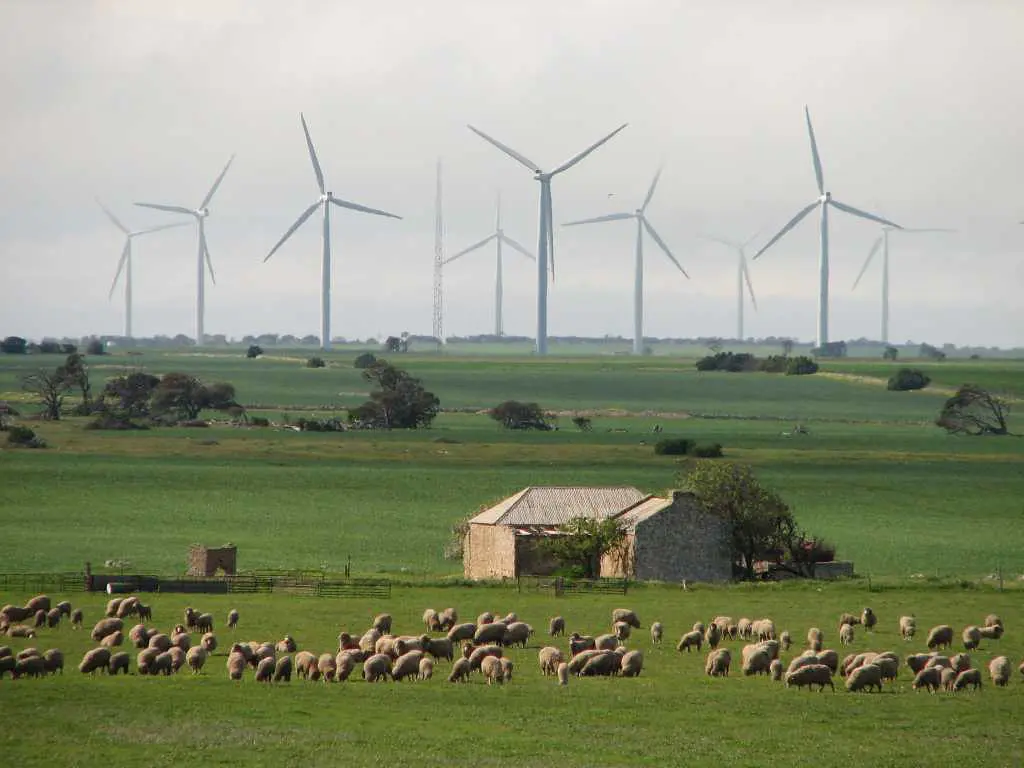Renewable energy developers will need to be strictly regulated if the proposed developer rating scheme doesn’t improve behaviour, says Australian Energy Infrastructure Commissioner (AEIC) Tony Mahar.
Despite being launched with some fanfare in March, there is still no sign of the first stage of the proposal, which was due to launch on 1 July.
The Department of Climate Change, Energy, Environment and Water did not respond to emails and a phone call asking for a status update.
After almost a year in the job, Mahar’s task for the coming year is to ensure the nine recommendations from the 2023 Community Engagement Review are not forgotten.
Topmost of these is the independent developer rating scheme, which has already passed its first major deadline with nothing to be seen.
The federal government wanted 10 developers from different renewable energy sectors to design and test the scheme over a four month period, with the first phase scheduled to launch on 1 July.
Mahar says the scheme is on the way, unlike some of the other recommendations.
“It’s slightly late but it is progressing. I’m a supporter of it, I think it will take some steps towards providing accountability and a benchmark for performance but it has to do what it says it’s going to do. It has to increase community confidence, it has to improve performance,” Maher told Renew Economy.
Given the rising community sensitivity towards the energy transition, however, Maher says a delay is worth making sure the scheme is effective from day one.
If it isn’t, regulation must follow.
“I’ll be watching to make sure that it does what it says it’s going to do. Because if it doesn’t we need to seriously consider more stringent measures and that includes strict regulation,” he says.
Regulation would need to include mandatory codes of conduct and mandatory community engagement best practice.
These are sticks that have people like Squadron Energy head Rob Wheals saying at the Australian Clean Energy Summit last week they’re “passionately” behind the scheme which will be “key” to rebuilding trust, tacitly keeping the concept in the public arena.
Urgently need some good PR
The 2023 community engagement review led by then commissioner Andrew Dyer was part of a deal with Teal MPs to respond to rising community angst about renewable energy developments, and found repeated poor engagement had created “material distrust” of renewable energy and grid developers.
Federal and state governments immediately committed in principle to implementing all nine recommendations when the review was released in early 2024.
But that initial reaction hasn’t resulted in any outcomes, yet.
Mahar said in March both government and industry risk “letting frustrations fester” if they don’t act.
Of the nine, Mahar says number six, a communication campaign, is the most critically important but one he is not seeing enough progress on.
“It’s desperately needed and I think governments and industry should collaborate on a comprehensive communications program to help communities, and help the nation understand the journey here,” he says.
“I don’t think there’s a good enough level of awareness, understanding and appreciation of the journey that we’re on.”
That recommendation was for a coordinated communications campaign that explains the energy transition using all tools available, from social media, national mastheads, webinars to briefings with local community groups, all supported by industry, and federal and state governments and their agencies.
But there is not enough progress on this, a problem Mahar experienced personally during a six month listening tour of Australia where he heard repeatedly that people don’t understand the need for the transition and don’t feel they’re being listened to.
“I’m not saying there isn’t information out there but it’s a very noisy space. It has to be done in a way that people can absorb it. They’ve got their lives and we have to think of innovative ways to help articulate, build awareness of what’s happening and why this is happening,” he says.
“You can’t expect people to embrace something if they don’t understand it.”
Victoria and wind were 2024’s biggest irritants
Mahar’s focus on implementing all nine of the recommendations is part of a 2024 AEIC review report released on Tuesday, which detailed the organisation’s third busiest year since it started in 2015.
The AEIC closed 155 cases in 2024 and recorded another 152, an increase which Mahar says is good accountability for the industry.
Most of the complaints, 77 per cent, were from Victoria and two thirds of the total were about wind farms.
Complaints about offshore wind and pumped hydro completely disappeared after a cluster in 2023, and they dropped off for transmission lines but the AEIC says it’s still managing long-term concerns among communities on certain stretches of proposed lines.
Most of these were about proposed projects, but the report noted that a big chunk were resolved just by providing relevant tailored information to the person – something that could likely have been achieved by the developer.
Land access is a real problem, with some people feeling like they have lost control over their own property.
The report also noted that one of the new methods for bringing communities on the journey, engaging with communities early, is also a problem.
The AEIC says while it might be done with good intent, it can lead to dissatisfaction because of the long time between first contact and the availability of detailed information, and drawn out planning processes.
Fire risks, road safety, proximity to airfields, and a lack of trust in regulatory processes to look after the environment are trends seen by the AEIC.

Rachel Williamson is a science and business journalist, who focuses on climate change-related health and environmental issues.

